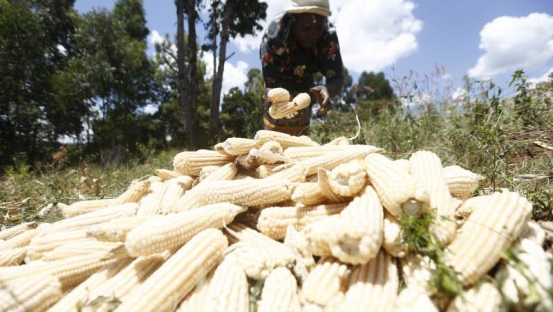×
The Standard e-Paper
Home To Bold Columnists

Middle-men paid small-scale maize farmers peanuts, even as the Government rewarded commercial farmers handsomely for their harvests.
This, according to a new report launched this week, is after small-scale farmers had spent more on their crops than their large scale farmers.